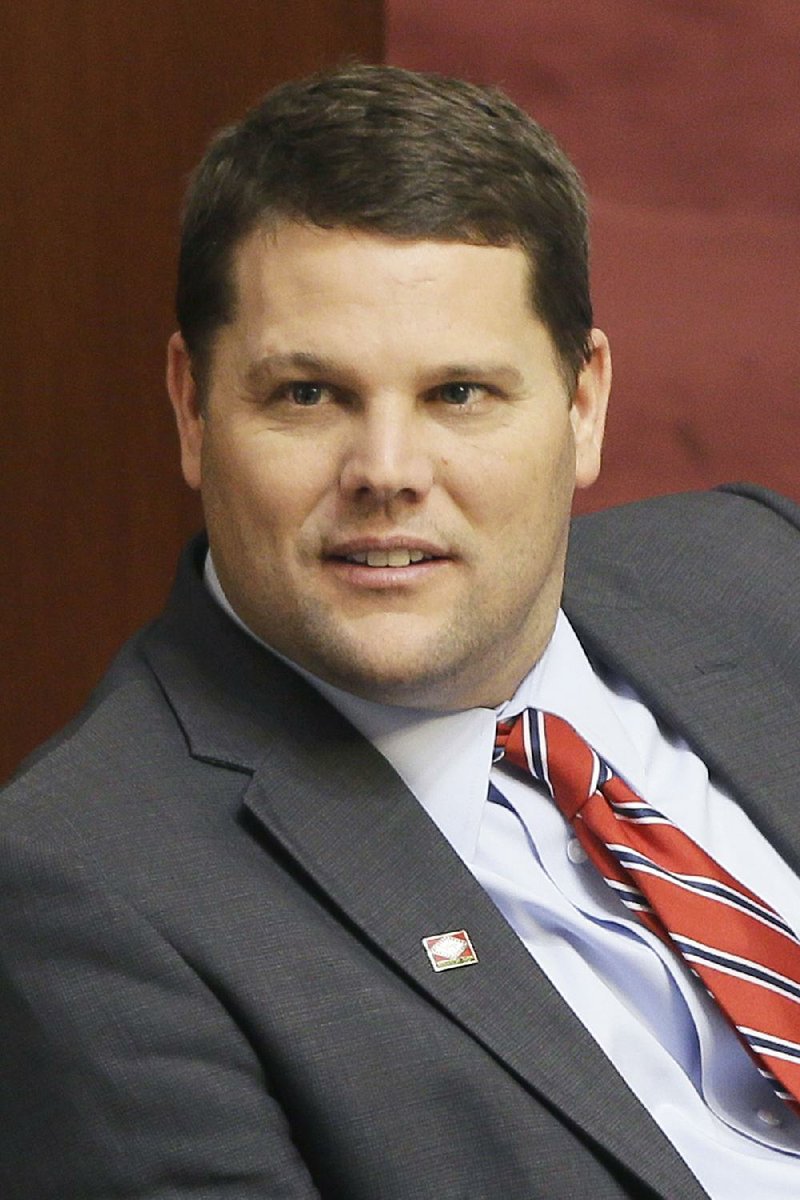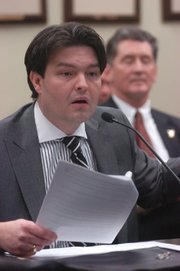ATLANTA -- The cost of expanding Medicaid under the 2010 federal health care overhaul is rising faster than expected in many states, causing budget anxieties and political misgivings.
Far more people than projected are signing up under the new, more relaxed eligibility requirements, and their health care costs are running higher than expected, in part because the new enrollees are apparently sicker than expected. Rising drug prices may also be a factor.
As a result, at least three expansion states, Arkansas, Kentucky and Ohio, have been pushing to require Medicaid recipients to pay more toward their health insurance, a step some experts say could lead tens of thousands of poor people who can't afford the extra cost to drop off the Medicaid rolls and go without coverage.
Contrary to common perceptions, Medicaid coverage isn't always free: Many states require modest copayments, including some enrollees in Arkansas' so-called private-option Medicaid expansion.
The soaring tab for the state-federal program could also harden opposition to expansion in the 19 states that have yet to sign up for the health care overhaul.
The situation will be one of the problems the next president will have to address, with the health care of millions of Americans hanging in the balance.
Thirty-one states and the District of Columbia have opted to expand the program for poor and lower-income Americans as part of the Patient Protection and Affordable Care Act, helping to reduce the number of people without health insurance.
The federal government has been picking up the entire tab for the new enrollees, but states will begin paying a 5 percent share in January, and that will rise to 10 percent by 2020.
While that may not sound like a lot, it can add up to tens of millions of dollars per state. Health care is already the second-biggest expense for states, behind public schools, and a number of states have yet to see their tax revenue fully rebound from the latest recession.
Some lawmakers in expansion states want to kill their programs altogether.
"The facts are, it is what every other [Medicaid] program has been -- a fiscal failure," said state Sen. Bart Hester, a Republican and opponent of Arkansas' private option.
Rep. Charlie Collins, R-Fayetteville, said Wednesday that he disagreed with Hester's view.
The alternative to the state's private-option system, under which many new Medicaid recipients are covered through private insurance, is to "walk away and take the D.C. alternative Hester seems to desire."
Collins, chairman of the Health Reform Legislative Task Force, said that alternative is to "send everyone to the emergency room for everything from a cold to a bleeding ulcer."
Arkansas, where more than 317,000 people have signed up for the expansion as of Aug. 31, is asking the federal government for permission to charge some new Medicaid recipients a monthly premium to help cover the costs. Two years ago, officials estimated 250,000 Arkansans were eligible for the private option.
Arkansas' total Medicaid enrollment, including the traditional fee-for-service program and the private option, is more than 800,000.
September enrollment figures aren't yet available, but Amy Webb, a spokesman for the state Department of Human Services, said Wednesday that they were expected to rise as the agency processes a backlog of applications.
The expansion of Medicaid in Arkansas now includes adults with incomes of up to 138 percent of the poverty level -- up to $16,394 for an individual, for example, and up to $33,534 for a family of four.
The state has budgeted $1.7 billion for the expanded program during the fiscal year that ends June 30, including $43 million in state funds.
Arkansas has asked the federal government to allow charging a monthly premium of about $13 to certain enrollees, plus allowing subsidies to participating small businesses that cover low-income workers. Webb said a response from the federal government is expected soon.
Those changes are part of Gov. Asa Hutchinson's plan, Arkansas Works, to revamp the private option. He has also asked Human Services Director Cindy Gillespie to develop projections by Oct. 15 on the cost of the Medicaid program over the next five years.
Collins said he expected the premium and all other requests for Arkansas Works to be approved.
"Even making someone pay one penny will slow them down" in using medical services, he said.
Sen. David Sanders, R-Little Rock and an early proponent of the private option, said he, too, expected approval of the premium, which he called "minuscule" and unlikely to cause Medicaid recipients to drop out.
In Kentucky, a state struggling to manage its pension debt, Republican Gov. Matt Bevin is asking for federal authorization to charge Medicaid enrollees up to $15 a month. He also wants to require some of them to perform "community engagement," which would include working or volunteering.
Some 400,000 Kentuckians have enrolled in Medicaid under the expansion, more than double the initial projections, prompting officials to allocate over $257 million for fiscal 2017 and 2018. That's well beyond the initial estimate of $107 million.
"At the end of the day, there needs to be the ability to pay for this," Bevin, who, like Arkansas, is waiting for an answer from Washington, said last month. "Why trick people, why lie to people, which is what we would be doing if we were to promise something that there was not the ability to pay for?"
Kentucky officials have estimated the proposed changes could result in at least 86,000 people dropping off the Medicaid rolls by 2021. One of them is Steve Olshewsky.
He makes about $9,000 a year teaching online classes and said he could not afford a monthly premium. He has struggled with depression and said he is doing better since he enrolled in Medicaid.
"I'm happy with my life," he said. "But if you pull this rug out from under me, that's the end of that story."
Under the Affordable Care Act, states have the option of expanding Medicaid by loosening the eligibility requirements to include all adults with incomes at or below 138 percent of the federal poverty level.
The Associated Press reported last year that more than a dozen states that opted to expand Medicaid had seen enrollments and costs surge beyond their expectations.
In a report to Congress over the summer, the federal Centers for Medicare and Medicaid Services said the cost of expansion was $6,366 per person in 2015, about 49 percent higher than expected.
Democratic presidential candidate Hillary Clinton has promised that if elected she would work to expand Medicaid in the remaining 19 states. She is proposing an incentive for states that are holding back: three years of full federal financing.
Republican Donald Trump has said he would repeal the federal health care law and supports turning Medicaid over to the states and limiting federal financing.
In Ohio, nearly 715,000 people had enrolled under the expansion as of August, way beyond the original estimates of roughly 447,000 by fiscal 2020. Ohio ended up budgeting more than double the $55.5 million it estimated the new enrollees would cost in the coming fiscal year.
The situation took on more urgency after federal officials last month rejected Ohio's proposal to charge some recipients as much as $99 a year.
Lawmakers in some states that have refused to expand Medicaid continue debating it, with some opposed for financial reasons, philosophical ones or both.
In Georgia, the state chamber of commerce recently produced three options for expansion. Each includes charging premiums.
Republican state Rep. Terry England, chairman of the Georgia House budget committee, is among those still dubious about expanding Medicaid. He said the health care system in the U.S. is broken.
"I'm a pretty firm believer that throwing more money at it doesn't fix it," England said. "You just prolong the agony until you sit down and fix the problem."
Information for this article was contributed by Frank Fellone of the Arkansas Democrat-Gazette and by Adam Beam, Andrew DeMillo, Ann Sanner and Ricardo Alonso-Zaldivar of The Associated Press.
A Section on 10/06/2016



